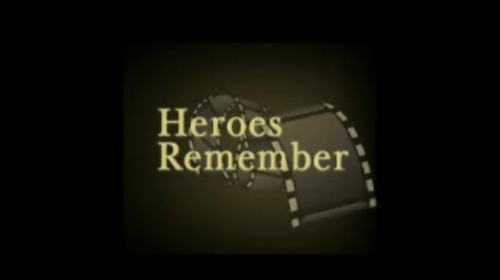I was throwing up blood
First World War Audio Archive
I was throwing up blood
Transcript
Hill 62 Memorial Belgium.
bandages, the wound was too far away. The bandages was not big, not long. So I was throwing up blood, wounds because in the day, I moved. Saturday I moved twice to do that, but they seen me.Courtrai Memorial Belgium.
I don’t know where they seen me, where they fired at, but the bullets come over, somebody was over. I wanted a drink. I lost a lot of blood, I don’t know how much blood I lost, but everything was running right out of me and I couldn’t move.Le Quesnel Memorial Belgium.
Me two legs was up, from me knees up, me boots, and me body and me head was down, down I imagine about that far. It was a long shell hole. He wasn’t handy to me but I crawled there, I hadn’t crawled only two or three fellas at the door, and I gotGueudecourt Memorial France.
in that hole. I stayed all Saturday, oh my with the sun pouring down. I’m face up, see, I couldn’t turn over, couldn’t turn over. I stay there, by and by, the sun went down, it got dark.Dury Memorial France.
So, I got up then on me knees and I crawled a little ways and I was into the wire, barbed wire. Then I crawled back again into the hole and I crawled another ways, and it seemed towards,Monchy Memorial France.
you know, our trenches, you know, I couldn’t... I don’t know how I got in there in the first place, but I don’t know how I got in. I don’t know whether there was any wire, when I was wandering. I must have gotten through the wire and didn’t know it, I suppose Anyhow, I stayed there. I said, now I’ll be picked up, somebodyPasschendaele Memorial Belgium.
will pick me up. Layed there all night and there wasn’t a soul came handy to me, not a soul. And all the fellas around me was dead then. But I was lying there. So, in the night, I suppose IMasnières memorial France.
must have been asleep, I was thinking about home like everyone else was. I thought I seen, well I, I thought me mother was there but I couldn’t see her, and I thought I was talking to her,Bourion Wood Memorial France.
and of course she wasn’t . . . I didn’t hear her but I’m sure, I’m sure she was there. I had a feeling. But that was alright. It was a fair spell, by and by, I fell off to sleep. I sleep forCourcelette Memorial France.
a little while and then I woke before daylight. And the shells is going over, the Germans, passing over, going out for... blowing up a reserve you see, you know. Afraid the British wouldBeaumont-Hamel Memorial France.
attack again. A shell come down around about an inch and a half, and that’s handy me cross, it come down and hit me right on theSt. Julien Memorial Belgium.
chest. Bango! I but my hand down and picked it up. Just warm, it twas. Just a little, little warm. It wasn’t hot, you see. It went on down through me. I threw it away. And stayed there, stayed there, and I had no idea if I’d last all night.Canadian National Vimy Memorial France.
I thought I wouldn’t do it. I waited, well, I don’t know if the sun was down then or not before, that was all. I know no more about it, no more about nothing.Description
Mr. Dunn describes his situation after being wounded; trying to stop his bleeding, being shot at by the Germans, trying and failing to crawl back to his lines through barbed wire, hallucinating about his mother and finally being hit in the chest by a shell fragment.
Ronald Dunn
Ronald Dunn was born in Bonavista, Newfoundland on May 31, 1897. He was a fisherman at the time of his enlistment, December 22, 1914, when he joined the Royal Newfoundland Regiment as a gunner. Mr. Dunn served in England, Egypt, and finally saw action in Gallipoli. He fell ill with dysentery and was sent back to England to convalesce. He was then deployed to France where he participated in the battles at Beaumont-Hamel and the Somme. He sustained two bullet wounds to his right thigh on July 1, 1916, and was given a medical discharge on October 22, 1917. After returning home, he married Elizabeth House, and had three children. Mr. Dunn was the president of the Bonavista Branch of the Great War Veterans’ Association whose membership he helped build to 150 strong. Mr. Dunn died in Golden Heights Manor, Bonavista, on September 8, 1994.
Meta Data
- Medium:
- Video
- Owner:
- Veterans Affairs Canada
- Duration:
- 4:21
- Person Interviewed:
- Ronald Dunn
- War, Conflict or Mission:
- First World War
- Location/Theatre:
- France
- Battle/Campaign:
- Beaumont-Hamel
- Branch:
- Army
- Units/Ship:
- Royal Newfoundland Regiment
- Rank:
- Gunner
- Occupation:
- Infantryman
Attestation
Related Videos
- Date modified:



